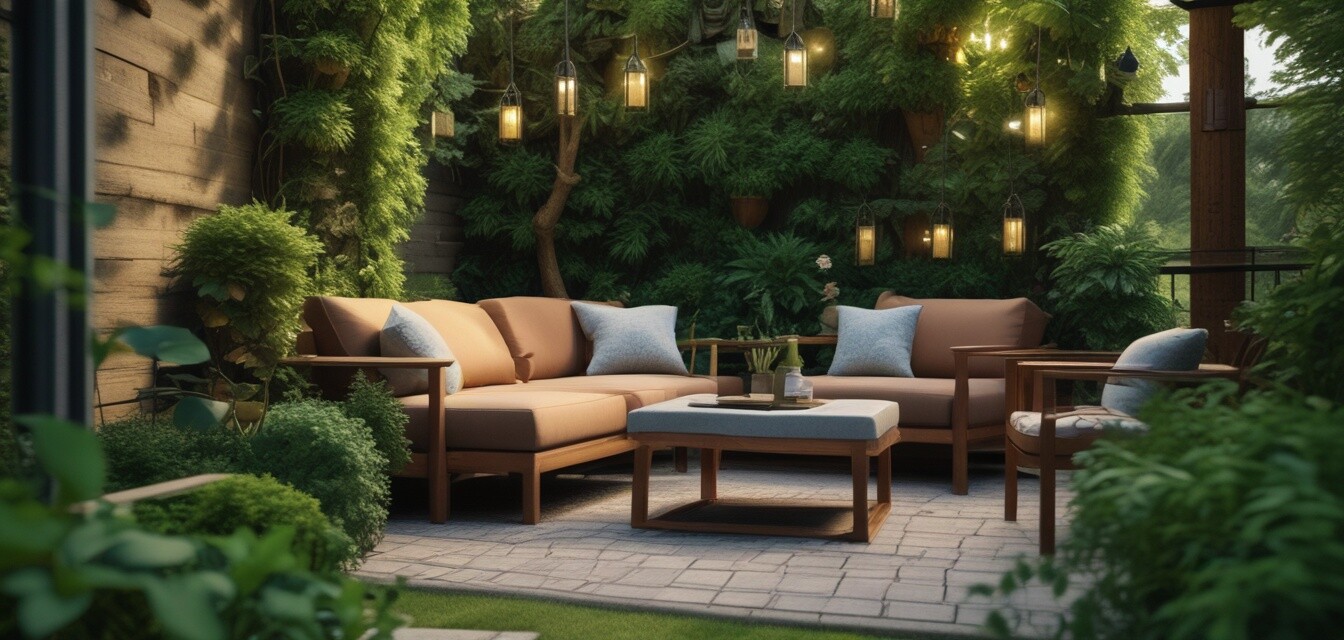
Maximizing small garden spaces with creative designs
- Utilizing vertical space can create the illusion of a larger garden.
- Incorporating multi-functional furniture enhances usability.
- Smart plant selection can optimize your garden's aesthetic.
- Embrace color and texture to add character to your space.
- Plan for seasonal changes to keep your garden vibrant year-round.
Gardening in small spaces can be both a challenge and an opportunity for creativity. Through innovative design and careful planning, small gardens can become lush, vibrant spaces that are both functional and aesthetically pleasing. In this article, we’ll explore various tips and design ideas that will help you maximize your small garden and turn it into a stunning outdoor retreat.
Understanding small garden limitations
Every garden, no matter how small, has its unique set of limitations. These constraints can inform your design choices:
- Space: Limited area requires efficient use of every square foot.
- Sunlight: Check sunlight exposure, as it directly affects plant choices.
- Soil quality: Small gardens often have limited soil depth, which can impact root growth.
Creative design ideas for small gardens
1. Vertical gardening
Vertical gardening is a fantastic way to maximize space. By growing plants upward rather than outward, you can add lush greenery without losing ground space. Consider:
- Wall-mounted planters or trellises
- Hanging pots
- Lattice structures for climbing plants
Incorporate greenhouses for extra creativity and increasing plant growth potential.
2. Container gardening
Containers can dramatically enhance the aesthetics of a small garden. They provide flexibility in design and can be easily moved to take advantage of sunlight. Utilize:
- Varied pot sizes and shapes
- Stacked planters for extra height
- Decorative garden furniture that doubles as storage
3. Multi-functional features
Look for elements that serve more than one purpose:
- Benches with built-in storage
- Railing planters that enhance balcony spaces
- Garden paths that help manage water runoff
4. Use of color and texture
Adding a color palette and diverse textures can draw the eye and enhance the space visually. Tips include:
- Planting colorful flowers among greenery
- Using ornamental grasses or textured foliage
- Incorporating decorative stones and pebbles
Seasonal considerations for your garden
Each season brings unique opportunities to refresh your garden. Consider these seasonal tasks:
| Season | Tasks |
|---|---|
| Spring | Plant new seeds and prepare soil |
| Summer | Maintain watering schedule and harvest crops |
| Fall | Trim plants and prepare for winter |
| Winter | Plan next year's design and inventory supplies |
Incorporating outdoor furniture
Outdoor furniture can enhance the enjoyment of your garden. Choose pieces that complement your design, such as:
- Compact chairs and tables
- Sitting areas with cushions for comfort
- Outdoor lighting solutions for ambiance
For ideas on outdoor furniture styles, check out our Premium Outdoor Furniture category.
Conclusion
Maximizing a small garden space demands creativity and thoughtful planning. Whether through vertical gardening, container use, or smart design choices, your small garden can transform into a beautiful and functional area that reflects your style. Embrace the opportunities that come with limited space and enjoy the vibrant beauty of your outdoor escape.
Tips for beginners
- Start with a clear plan and layout.
- Use a mix of plants to create depth.
- Invest in good quality soil and fertilizers.
Pros
- Efficient use of limited space.
- Opportunity for creativity in design.
- Year-round enjoyment with seasonal adaptations.
Cons
- Maintenance can be high depending on plant choices.
- Limited selection of large plants.
- Sunlight limitations can restrict options.